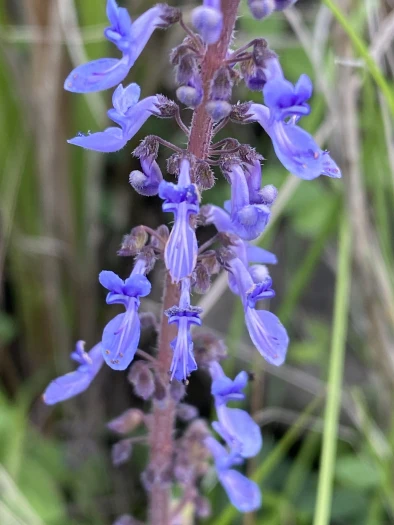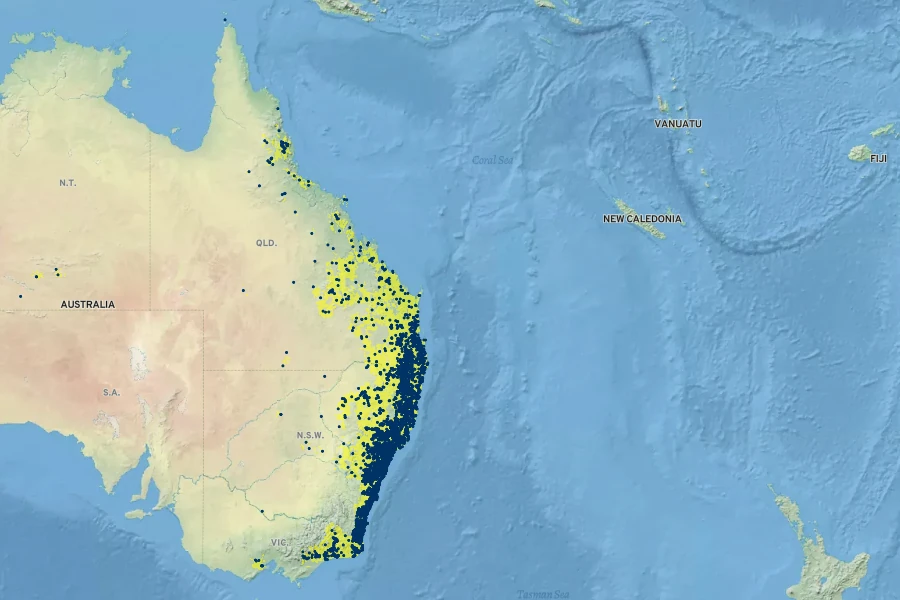Little Spurflower
/
(Coleus australis)
Little Spurflower (Coleus australis)
/

© Martin Hannan-Jones
CC BY 4.0
Image By:
© Martin Hannan-Jones
Recorded By:
Copyright:
CC BY 4.0
Copyright Notice:
Photo by: © Martin Hannan-Jones | License Type: CC BY 4.0 | License URL: http://creativecommons.org/licenses/by/4.0/ | Uploader: martinhj | Publisher: iNaturalist |
















Summary
Coleus australis, commonly known as little spurflower or cockspur flower, is a perennial herb that is native to open woodlands and forest edges in Australia. It typically grows to a height of 2-3 feet (0.6-0.9 meters) and spreads to a similar width. This plant is characterized by its square stems and vibrant foliage, which can range in color from green to purple, often with intricate patterns. The small blue to violet flowers are less showy and appear in summer. Coleus australis is appreciated for its colorful leaves and is often used in ornamental plantings, container gardens, and as a ground cover.
In cultivation, little spurflower thrives in part shade to full sun conditions and prefers well-drained soil with regular watering. It is relatively low maintenance but benefits from occasional pruning to encourage bushier growth. While it is not typically prone to serious diseases or pests, it can be susceptible to mealybugs and spider mites. Gardeners should ensure it does not spread rapidly when cultivated outside its native range.CC BY-SA 4.0
In cultivation, little spurflower thrives in part shade to full sun conditions and prefers well-drained soil with regular watering. It is relatively low maintenance but benefits from occasional pruning to encourage bushier growth. While it is not typically prone to serious diseases or pests, it can be susceptible to mealybugs and spider mites. Gardeners should ensure it does not spread rapidly when cultivated outside its native range.CC BY-SA 4.0
Plant Description
- Plant Type: Shrub, Herb
- Height: 1-2 feet
- Width: 2-3 feet
- Growth Rate: Rapid
- Flower Color: White
- Flowering Season: Fall, Winter
- Leaf Retention: Evergreen
Growth Requirements
- Sun: Part Shade, Full Shade
- Drainage: Medium, Fast
Common Uses
Border Plant, Low Maintenance, Potted Plant
Natural Habitat
Native to open woodlands and forest edges in Australia
Other Names
Common Names: Swedish Begonia, Creeping Charlie, Whorled Plectranthus
Scientific Names: Coleus australis, Germanea australis, Germanea parviflora, Majana parviflora, Moschosma australe, Moschosma australis, Moschosma brownii, Plectranthus australis, Plectranthus australis f. australis
GBIF Accepted Name: Coleus australis
